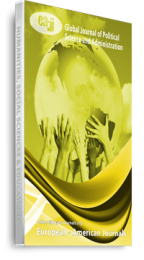In recent years, every election season in Nigeria has been marred by a gory cycle of electoral violence that claim many innocent lives. The broad objective of this study was to evaluate the effectiveness of the mass media, social media, and word-of-mouth communication as voter education tools for curbing electoral violence in the 2019 general elections in Enugu State of Nigeria. The study was conducted by using an opinion survey, and questionnaires distributed through physical and online methods were the major instruments for data collection. The respondents were made up of electorates drawn from the 23 local government areas of Enugu State, Nigeria. Results from the study indicate that the social media and mass media communication tools employed in voter education campaigns against electoral violence in the 2019 general elections in Enugu State, Nigeria, were not significantly effective, while the word-of-mouth communication approaches employed were effective. The ineffectiveness of the social media and mass media as communication channels for voter education aimed at curbing electoral violence in the State was traced to the disconnect between the messenger (Nigerian politicians) and their messages. The lack of trust among electorates for the political actors affected their acceptance of the messages on electoral violence from those channels because they were perceived as using them for mere publicity purposes and also doing things different from what they were preaching. Based on this outcome it was recommended among other things that a proactive nationwide voter education campaign should be initiated through social media, the mass media, and word-of-mouth communication to enlighten the Nigerian populace on the dangers of electoral violence before every election season in the country.
Keywords: Election, Mass Media, Social media, electoral violence, voter education, word-of-mouth communication.

